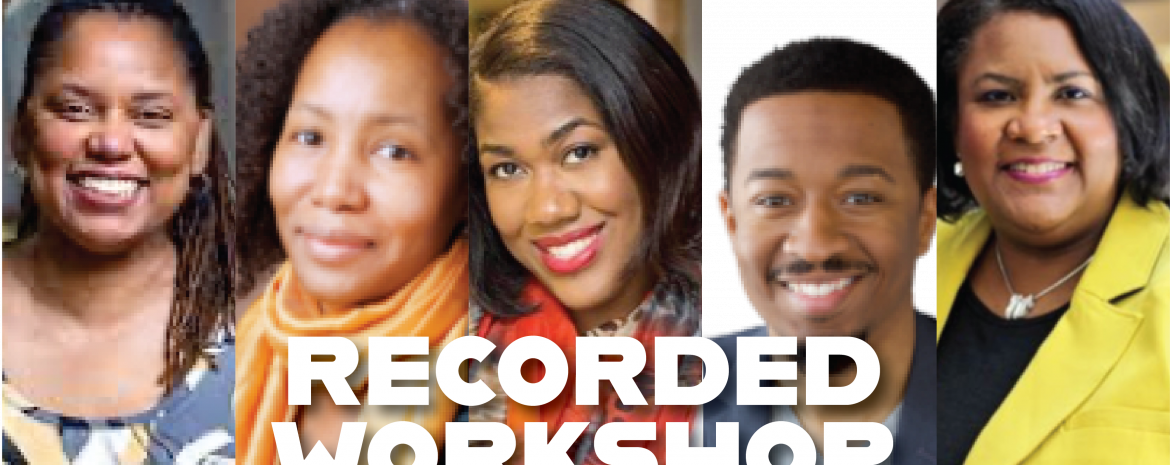Black Engineering Faculty Speak
December 18, 2020, 2:00 pm (ET)
Black Engineering Faculty Speak
Facilitators: Dr. Carlotta Berry, Dr. Audrey Bowden, Dr. Monica Cox, Dr. Leroy Long, III and Dr. Tahira Reid
https://youtube.com/watch?v=slWyGlxlifM%22+frameborder%3D%220%22+allow%3D%22accelerometer%3B+autoplay%3B+clipboard-write%3B+encrypted-media%3B+gyroscope%3B+picture-in-picture%22+allowfullscreen%26gt%3B%26lt%3B
Resources
Workshop Description
The Black In Engineering (BIE) social justice movement was created in response to the numerous injustices that have taken place in our nation against Black people, and to address racial equity and social justice in the STEM academy. It was inspired by a desire for change after the George Floyd killing and the hashtag BlackInTheIvory went viral on Twitter. By scrolling through the posts, it became quickly apparent that although Black academics were sharing their experiences with microaggressions, unconscious bias and invisible labor, engineering faculty were relatively silent.
The purpose of our virtual workshop/webinar is to engage members of the engineering community in conversations about the BIE social justice movement, Call to Action (Recommendations for Institutions to become Anti-Racist), and ways that the call may become actionable and sustainable. We will describe the components of the social justice movement including policy, messaging, awareness and the media campaign, Black Engineering Faculty Speak (BEFS). The goal of BEFS is to bring broader awareness to the issues Black engineering faculty experience, such as implicit bias and marginalization, to facilitate dialogue, to bring change to the broader community, to connect to current and potential partners and sponsors, to unite the STEM community, and to stand in solidarity with productive activism efforts for Blacks in America.
Call To Action: https://blackinengineering.org/action-item-list/
Learning Objectives
Upon completion of the workshop/webinar, participants should be able to
- Societal Awareness: describe how systemic oppression and marginalization of Black people in engineering is connected to current social events,
- Institutional Awareness: explain why systemic oppression hurts the institution overall and see the urgency and benefit of change,
- Personal Accountability: recognize their personal obligation to act to dismantle the institutional processes that support systemic racism,
- Institutional Accountability: identify practices within their own institution that support systemic racism and actions they have yet to embrace successfully, and
- Action: identify ways that the Black in Engineering (BIE) Call to Action can be applied to engineering spaces to promote actionable and sustainable change.
Facilitators
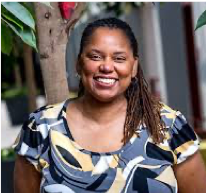 |
Carlotta A. Berry, Ph.D. is a Professor in the Department of Electrical and Computer Engineering at Rose-Hulman Institute of Technology. She is one of a team of faculty in ECE, ME and CSSE at Rose-Hulman to create and direct the first multidisciplinary minor in robotics. She is the Co-Director of the NSF S-STEM Rose Building Undergraduate Diversity (ROSE-BUD) Program and advisor for the National Society of Black Engineers. Dr. Berry has been selected as one of 30 Women in Robotics You Need to Know About 2020 by robohub.org, Reinvented Magazine Interview of the Year ward on Purpose and Passion, Women and Hi Tech Leading Light Award You Inspire Me and Insight Into Diversity Inspiring Women in STEM. She has a special passion for diversifying the engineering profession by encouraging more women and underrepresented minorities to pursue undergraduate and graduate degrees. She feels that the profession should reflect the world that we live in in order to solve the unique problems that we face. |
|---|---|
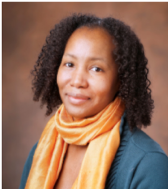 |
Audrey K. Bowden, Ph.D., is the Dorothy J. Wingfield Phillips Chancellor Faculty Fellow and Associate Professor of Biomedical Engineering (BME) and of Electrical Engineering and Computer Science (EECS) at Vanderbilt University. Prior to this, she served as Assistant and later Associate Professor of Electrical Engineering and Bioengineering at Stanford University. Dr. Bowden received her BSE in Electrical Engineering from Princeton University, her PhD in BME from Duke University and completed her postdoctoral training in Chemistry and Chemical Biology at Harvard University. During her career, Dr. Bowden served as an International Fellow at Ngee Ann Polytechnic in Singapore. From 2007-2008, she was the Arthur H. Guenther Congressional Fellow sponsored by the OSA and SPIE and served as a Legislative Assistant in the United States Senate through the AAAS Science and Technology Policy Fellows Program. Dr. Bowden is a Fellow of SPIE, a Fellow of AIMBE, a Fellow of OSA and is the recipient of numerous awards, including the Air Force Young Investigator Award, the NSF Career Award, the Hellman Faculty Scholars Award, the Phi Beta Kappa Teaching Award, Ford Foundation Postdoctoral Fellowship, and the NSBE Golden Torch Award. She is a former Associate Editor of IEEE Photonics Journal, Former Lead Guest Editor of Biomedical Optics Express and is a member of numerous professional committees. Her research interests include biomedical optics – particularly optical coherence tomography and near infrared spectroscopy – microfluidics, and point of care diagnostics. |
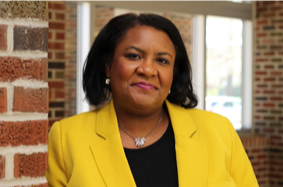 |
Monica F. Cox, Ph.D., is Professor of Engineering Education at The Ohio State University and is a 2020 American Society for Engineering Education (ASEE) Fellow. She holds degrees in Mathematics (B.S., Spelman College), Industrial Engineering (M.S., University of Alabama), and Leadership and Policy Studies (Ph.D., Peabody College at Vanderbilt University, 2005). She began her academic career in the School of Engineering Education at Purdue University, where she earned a Presidential Career Award for Scientists and Engineers (PECASE), becoming the first African American woman to earn tenure in Purdue’s College of Engineering. In 2016, she became Professor and Inaugural Chair in the Department of Engineering Education at The Ohio State University. She is the Founder and CEO of STEMinent LLC, which houses educational assessment, professional development, and media offerings. Her research focuses on the use of mixed methodologies to explore questions across the education continuum, particularly why engineering women faculty persist. Dr. Cox has led and collaborated on multidisciplinary projects totaling approximately $16 million and has authored over 130 publications. |
 |
Leroy Long, III, Ph.D., is an Assistant Professor of Engineering Fundamentals at Embry-Riddle Aeronautical University in Daytona Beach, FL. Dr. Long directs a research team called Engineering, Arts & Sports Engagement (EASE). His research interests include: (a) educational equity and racial justice, (b) student retention and career readiness, as well as (c) students’ ethical reasoning and technology use, with a particular focus on STEM students. He has helped to lead research, funded by the NCAA Innovations in Research and Practice Grant, to improve the well-being of the student-athlete through support of their career readiness. He has also helped to secure funding from NSF (award # 2024973) to examine the potential benefit of using critical narratives as a pedagogical tool in the professional formation of engineers. Dr. Long earned his PhD in STEM Education with a focus on Engineering Education within the Department of Teaching and Learning at The Ohio State University (OSU). He earned his Master’s in Mechanical Engineering at OSU and his Bachelors in Mechanical Engineering at Wright State University. Dr. Long is a native of Dayton, OH. He is a proud graduate of Dayton Public Schools and Wright STEPP – Wright State University’s Science, Technology, and Engineering Preparatory Program (STEPP). Dr. Long has taught undergraduates in the First-Year Engineering Program and Department of Mechanical Engineering at OSU. He has served as a facilitator for both the University Center for the Advancement of Teaching (UCAT) and Young Scholars Program (YSP) while also becoming a Bell Fellow at OSU. Furthermore, Dr. Long has worked in industry at Toyota through participation in INROADS. He has a high record of service with organizations such as the American Society of Engineering Education (ASEE) and National Society of Black Engineers (NSBE). |
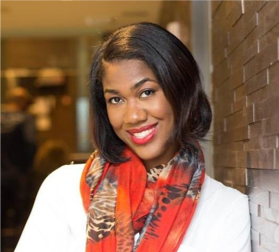 |
Tahira Reid Smith, Ph.D., is an Associate Professor in the School of Mechanical Engineering at Purdue University and is a NASA Visiting Scholar for Fall 2020. Her research involves the quantification and integration of human-centered considerations in engineering systems and/or the design process. Her research has been funded by the National Science Foundation, Air Force Office of Scientific Research, Procter & Gamble, Ford, General Motors and other sponsors. Her projects that involved the intersection of diversity and mechanical engineering have been featured in media sources including National Geographic, NBC’s Today Show, Essence Magazine, Reuters, National Public Radio and many others. A highly sought out role model for the younger generation, Dr. Reid Smith’s story is featured in two children’s books and was on the 2017 New York State English and Language Arts Common Core Exam for over 100,000 fourth graders. She is passionate about re-branding Mechanical Engineering to be more inviting to young women, especially those of African descent. Dr. Reid Smith obtained BS and MS degrees in Mechanical Engineering from Rensselaer Polytechnic Institute and a Ph.D. in Design Science, where Mechanical Engineering and Psychology were her focus areas, from the University of Michigan – Ann Arbor. |

